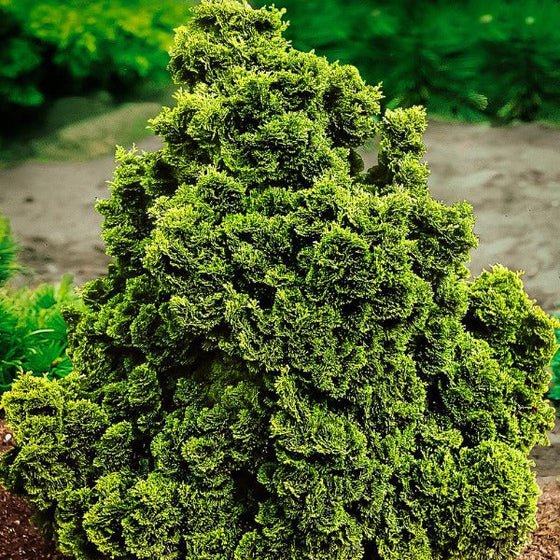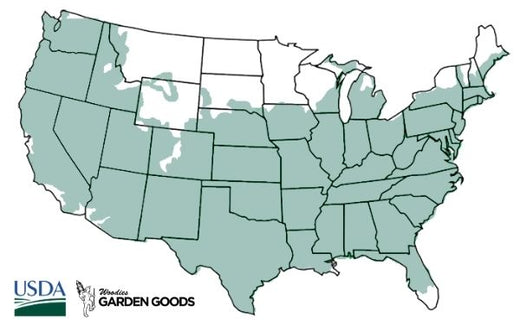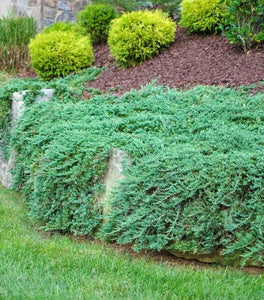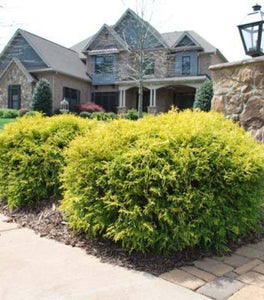In general gardening terms, pruning is probably the most misunderstood gardening chore, and certainly, the chore that is most likely neglected. When we specifically look at pruning with regards to Dwarf Hinoki Cypress Shrubs, this misunderstanding and negligence can be magnified. Pruning has been described as a “combination of art and science.” Pruning a specific plant to look a specific way, involves art in creating a unique definition for a specific plant, and it involves science in understanding the physical growing habits of the plant to be pruned. They can be planted to create a low hedge or used in the border as specimens or en masse to create a wave of color. Being a dense evergreen shrubs they can even be employed to disguise ugly areas, such as dustbin or bicycle stores. And they can be extremely effective grown in pots, perhaps alongside some flowering heathers, placed in a prominent position when they come into flower in the winter, to brighten up the front of a house or patio. The most important reason for pruning Dwarf Hinoki is to improve the overall health of the plant. Many times, Hinoki Cypress that have not been pruned in a few years will develop dead or degenerative twigs. Removing the dead and dying limbs will minimize the possibility of diseases such as “dieback” and will also allow the plant to re-concentrate its energies. In many instances, Dwarf Hinoki that have been neglected for a number of years will become infested with insects such as scale. Severely pruning such infested Dwarf Cypress will not only re-invigorate the plant, but will also reduce insect problems and minimize corrective treatments necessary to eliminate such problems. Another reason for pruning shrubs is to re-define the plant’s definition within the landscape. Many times, a plant may outgrow its intended size in the landscape, and must be pruned to re-define its purpose. Pruning should always be associated with re-invigorating a plant by allowing it to focus its energies on producing more vigorous branches, foliage, and flowers. It is also important to understand the specific growing characteristic of a certain plants when pruning that particular plant. When pruning established plants where no labeling is present on a variety to identify it, you need to look at the general growth patterns of the plant to be pruned. These observations should give you a good idea of how the plant tends to grow, and also how you should prune the plant. Many times, gardeners inherit a wealth of shrubs in their gardens when they purchase a previously owned residence. Although these plants may have been lovingly cared for by the previous owner, it may be necessary to severely prune these plants to restore vigor or to create a different definition in the landscape for the new owner of the property. Severe pruning should be done just after the plant has finished blooming. In some instances where the required pruning would be drastic, the pruning may be done towards the end of summer even if the plant has not finished blooming. Severe pruning of Dwarf Hinoki Cypress is generally thought to involve the removal of one third to one half of the existing plant. However, in some instances, this severe pruning could be even more drastic. In most cases, the plant should have no problem recovering from such a major pruning, and the pruned plant should quickly begin to grow with vigor. It is important to always use sharp tools when pruning plants. Knives, hand cutters, saws, and shears should be sharpened if necessary before pruning any plants. A sharp cut will heal quicker than a jagged cut, which will also minimize the likelihood of disease investing a cut during pruning. It is generally recommended to not use power equipment such as gas hedgers to prune Dwarf Cypress. Prune limbs flush to the feeder branches without leaving "nubs". These leftover branches could eventually provide host for disease to enter your Dwarf Evergreen Shrubs. Many gardeners apply a pruning sealant or paint to all cut surfaces after pruning, but that practice is generally not necessary. Hinoki Cypress grows best in full sun locations protected from hot afternoon sun. It prefers a rich moist to well-drained soil, but will tolerate sandy locations and clay if the drainage is adequate. Once established it is drought tolerant. It is slow to become established, often taking a couple of years to settle in. Little pruning is needed other than the occasional removal of dead or broken branches. In severe and sudden cold snaps it can defoliate, but it will leaf out in spring. Prune Dwarf Hinoki Cypress Shrubs in spring after flowering to maintain attractive shape.

















